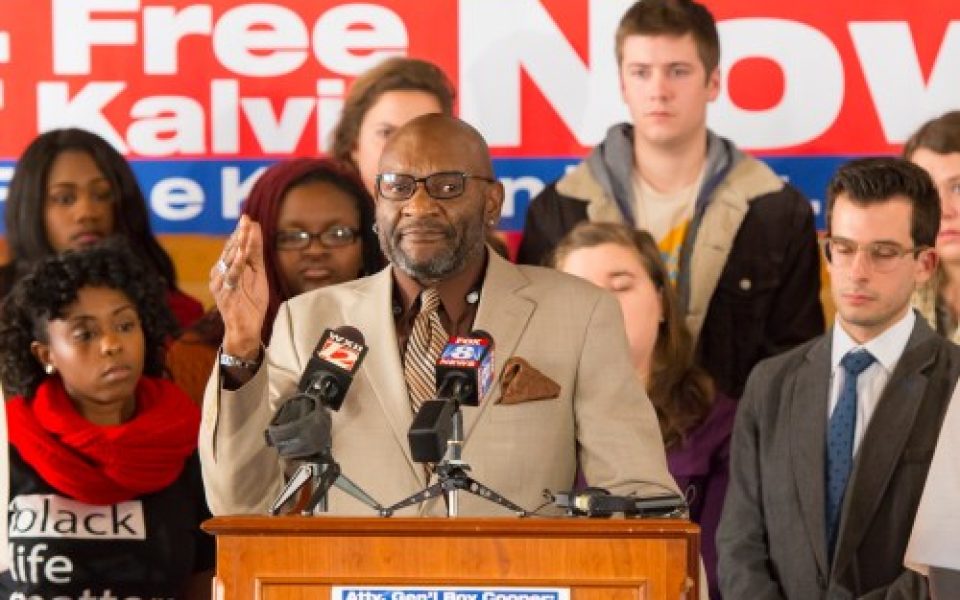
In front of a capacity crowd in Bookmarks’ back room, Phoebe Zerwick’s voice wavers on occasion but cracks just once, in the beginning, when she talks about the day Darryl Hunt was found dead in his car, parked in a lot across the street from the Joel.
Her career has been intertwined with Hunt’s life — and death — since 2003, when she began reporting on his wrongful conviction and the many twists and turns that finally led to his exoneration in 2004. She’s here tonight reading from her new book, Beyond Innocence, that attempts to make sense of Hunt’s harrowing journey, or at least glean its lessons and insist we all give them a look.
So many of our institutions failed Darryl Hunt, again and again and again. By the time we were through with him, there was barely anything left.
My own time with Darryl Hunt came in 2007, when we spent a couple days together for a profile I wrote shortly after he got his settlement — $2 million from the state and city, which his lawyer Mark Rabil reminded me could never fully compensate for the things Hunt lost.
I thought about him often in the years after that story ran, and even more frequently after his death. Darryl Hunt was right about everything: the racism prevalent in our criminal justice system, the ease with which a young, Black man like himself could have his whole life taken from him by the state, the futility of pushing against a structure that was never designed to work in reverse.
So many of our institutions failed Darryl Hunt, again and again and again. By the time we were through with him, there was barely anything left.
Phoebe Zerwick, who has been working this story for 20 years, will not let us forget.
After her reading, former Winston-Salem Journal Editor Mark Wright gets a microphone. He was on the desk the night Deborah Sykes disappeared, he says. He acknowledges his own rush to judgment after the initial arrest, the legacy media’s culpability in Hunt’s false conviction for the murder, his own reluctance to believe in Hunt’s innocence even after it had been established.
“We all wanted someone to pay for it,” he says, before, finally, apologizing.
Join the First Amendment Society, a membership that goes directly to funding TCB‘s newsroom.
We believe that reporting can save the world.
The TCB First Amendment Society recognizes the vital role of a free, unfettered press with a bundling of local experiences designed to build community, and unique engagements with our newsroom that will help you understand, and shape, local journalism’s critical role in uplifting the people in our cities.
All revenue goes directly into the newsroom as reporters’ salaries and freelance commissions.


Leave a Reply